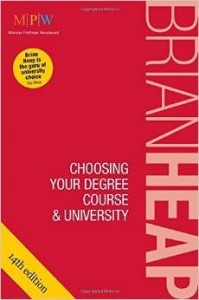A Guide to applying for a degree course and university.
It should take your son or daughter around a year to choose the right degree course and university not to mention get accepted, so the best advice is to start early. With about 1,200 to choose from the first priority must be to pick a course.
There are two kinds of degree courses, non-vocational (e.g. Ancient History, Anthropology, English, Politics) and vocational courses which result in a professional qualification (e.g. Audiology, Dentistry, Engineering, Orthoptics, Radiology).
Taking a vocational course will require additional preparation since the applicant must not only check the content of the university course, but also the career requirements. The best way to do this is to speak to professionals within the industry and try to get work experience, which can be vital for the UCAS Personal Statement and is also necessary for some degree courses such as Medicine and Law.
If they haven’t already chosen a career, applicants will often make a first choice of a degree subject by way of their favourite subject at college, but they should also consider a second option – their personality, interests and abilities in which there are seven main options: Scientific courses –for those who enjoy biology and chemistry in particular there’s a range of vocational courses in medical and health fields
- Technical courses – for those who are practical and ‘hands-on’ (e.g. Computer Science, Engineering and Music and Sound Technology)
- Artistic courses – for creative people with ability in art and design (e.g. Product design and Architecture)
- Outdoor and active courses (e.g. Physical Education, Physiotherapy and Sport)
- Communication courses – for those who enjoy meeting people and have an interest in current affairs (e.g. Journalism, Media Studies, Advertising)
- Social courses– Is your child keen to help people? (e.g. Social Work, Psychology)
- Business Courses – for those who can demonstrate attention to detail and can work in a team. (e.g. Business Management, Economics , Accountancy, Marketing)
For help selecting a course, there is Choosing Your Degree Course and University (Trotman Publications). The book includes extensive lists of the variety of course options and possible alternatives when a subject is finally chosen.
Every year a large number of students drop out of their chosen course and university, many jumping to the conclusion that they know what the course is all about. Like one student who decided on a course in Psychology but didn’t realise it included a lot of science. Others never visit the university before they start, mainly those who choose a course in a hurry in Clearing and realise it’s not what they expected. One applicant applied to Bangor, North Wales, thinking it was Bognor on the south coast! It is essential for you and your child to visit universities before Freshers Week!
In the end, an applicant’s academic ability will determine which universities can be seriously considered. Each university website will provide full details of the grades they require, but why search through every university website, read Heap2015 Degree Course Offers (Trotman Publications) or www.heaponline.co.uk. Under every degree subject is a list of all universities offering that subject and their offers on a sliding scale high to low, so you can see immediately where your child’s grades will be accepted. The book also gives advice from admission tutors, the questions they may ask at interview, alternative courses and advice on completing a UCAS form.



